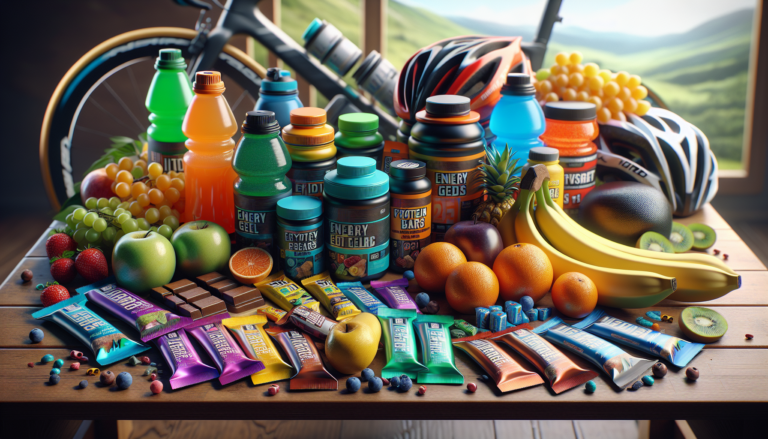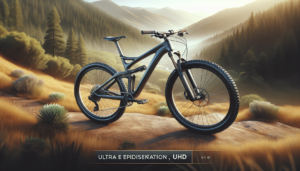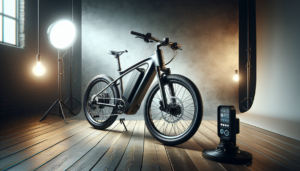Introduction to Cycling Nutrition
Proper cycling nutrition is essential for performance enhancement and enjoyment of the sport. Implementing the right dietary practices can make a significant difference in how you feel and perform on the bike. Understanding the key components of cycling nutrition and how to optimize your intake is crucial for every cyclist looking to improve their results.
Why Cycling Nutrition is Important
Cycling places unique demands on the body, requiring significant energy expenditure and pushing your endurance to the limits. Proper nutrition helps fuel your rides, maintain consistent energy levels, speed up recovery, and reduce fatigue. Getting your cycling nutrition right can substantially boost your performance and allow you to ride stronger for longer.
Key Components of Cycling Nutrition
An effective cycling nutrition plan should include the right balance of carbohydrates, proteins, and fats, as well as proper hydration. Carbohydrates are the body’s primary fuel source during exercise, while protein supports muscle repair and recovery. Healthy fats provide long-lasting energy. Staying hydrated is critical for maintaining blood volume, regulating body temperature, and transporting nutrients. Let’s take a closer look at each of these components.
Carbohydrates: The Primary Fuel Source
Carbohydrates are the body’s go-to fuel source during cycling. They are stored as glycogen in the muscles and liver, providing readily available energy for working muscles. As cycling intensity increases, so does the body’s reliance on carbohydrates for fuel.
Optimal Carbohydrate Intake During Rides
To maintain stable energy levels during rides, cyclists should aim to consume 30-60g of carbohydrates per hour of cycling. This can come from a combination of sports drinks, gels, bars, or whole foods like bananas or rice cakes. Experiment with different sources to find what works best for you and your gut.
Carb Loading for Long Distance Cycling
Before prolonged rides or events, carb loading can help maximize your body’s glycogen stores. This involves increasing your carbohydrate intake in the days leading up to the event, tapering exercise, and focusing on high-carb, low-fiber foods. Effective carb loading ensures you start your long distance cycling event with fully stocked glycogen stores.
Protein: Essential for Muscle Repair
Protein is vital for endurance athletes like cyclists because it supports muscle repair, growth, and maintenance. During long or intense rides, some protein breakdown occurs, making it important to consume enough protein to offset these losses and promote recovery.
Recommended Protein Intake
Cyclists should aim to consume 1.2-2.2g of protein per kg of body weight daily, depending on the intensity and volume of their training. This can be spread across several meals and snacks, focusing on high-quality protein sources like lean meats, fish, eggs, dairy, legumes, and soy products.
Post-Ride Protein for Recovery
Consuming protein shortly after rides is particularly important for muscle repair and recovery. Aim to have 20-30g of protein within an hour of finishing your ride, along with carbohydrates to replenish glycogen stores. Good post-ride protein options include recovery shakes, Greek yogurt, cottage cheese, or a turkey and cheese sandwich.
Hydration Strategies for Cyclists
Proper hydration is essential for cycling performance, as even mild dehydration can impair physical and mental function. Fluid needs vary depending on individual sweat rates, environmental conditions, and ride intensity, but a general guideline is to drink enough to prevent thirst and maintain pale urine color.
Hydration Needs Based on Ride Duration
For short rides (less than 60-90 minutes), water is usually sufficient for hydration. However, for longer rides, cyclists should consider adding electrolytes and carbohydrates to their hydration plan. A good starting point is to drink 1-2 bike bottles mixed with a sports drink or electrolyte mix per hour of riding.
Electrolyte Drinks for Longer Rides
During long rides, cyclists lose substantial amounts of electrolytes like sodium, potassium, and magnesium through sweat. Electrolyte drinks help replace these losses, maintain fluid balance, and prevent cramping. Look for drinks that provide 500-700mg of sodium per liter, and consider alternating between water and electrolyte beverages throughout your ride.
Pre-Ride Nutrition: Fueling Up
What you eat before your rides can have a big impact on your energy levels and performance. The goal of pre-ride nutrition is to top off your glycogen stores, provide sustained energy, and avoid gastrointestinal distress.
What to Eat Before a Ride
Focus on easily digestible carbohydrates and a small amount of protein 2-4 hours before your ride. Good options include oatmeal with fruit and nuts, a bagel with peanut butter, or a smoothie made with banana, yogurt, and milk. Avoid high-fat and high-fiber foods, which can be slow to digest and cause stomach upset.
Timing Your Pre-Ride Meal
Meal timing is key for pre-ride nutrition. Eat your last substantial meal 2-4 hours before cycling to allow for digestion. If you need a small snack closer to your ride, choose something light like a banana or energy bar about 30-60 minutes before starting. Proper nutrient timing ensures you have available energy without risking digestive issues.
During Ride Nutrition: Maintaining Performance
Eating and drinking during rides is essential for maintaining energy levels and preventing fatigue, especially during longer outings. The key is to consume easy-to-digest carbohydrates and fluids at regular intervals.
Snacks and Drinks for During the Ride
Aim to consume 30-60g of carbohydrates per hour from sources like sports drinks, gels, chews, or bars. Whole foods like bananas, fig bars, or homemade rice cakes can also work well. For hydration, drink consistently throughout your ride, aiming for 1-2 bottles per hour, depending on conditions.
Avoiding Common Nutrition Mistakes
One common mistake is waiting too long to start fueling during a ride, which can lead to energy depletion and bonking. Another is relying too heavily on solid foods, which can be harder to digest. Experiment with different nutrition strategies during training to find what works best for you and stick to it during events.
Post-Ride Nutrition: Recovery and Replenishment
What you eat after your rides is just as important as what you eat before and during. Post-ride nutrition aims to replenish glycogen stores, repair muscle damage, and support overall recovery.
Importance of Post-Ride Nutrition
Consuming the right nutrients after cycling helps jumpstart the recovery process, reduces muscle soreness, and prepares your body for future training sessions. Aim to eat within 30-60 minutes of finishing your ride, when your body is primed to absorb and utilize nutrients effectively.
Best Foods and Drinks for Recovery
A combination of carbohydrates and protein is ideal for post-ride recovery. Good options include recovery shakes or chocolate milk, Greek yogurt with berries, a turkey and avocado wrap, or a stir-fry with rice and lean protein. Rehydrating with water or an electrolyte drink is also important to replace fluid losses.
Creating a Comprehensive Nutrition Plan
Putting together an effective cycling nutrition plan requires considering your individual needs, preferences, and goals. Working with a sports nutritionist or registered dietitian can help you develop a personalized approach.
Tailoring Your Nutrition Plan
Your cycling nutrition plan should take into account factors like your training volume and intensity, body composition goals, dietary restrictions, and food preferences. It should include guidelines for daily eating as well as specific strategies for pre-ride, during ride, and post-ride nutrition.
Monitoring and Adjusting Your Nutrition
Keep track of how you feel and perform in relation to your nutrition habits, and don’t be afraid to make adjustments as needed. Pay attention to your energy levels, recovery, digestion, and overall sense of well-being. If something isn’t working, try tweaking your food choices, timing, or portion sizes until you find the right balance.
| Ride Duration | Nutrition Recommendations |
|---|---|
| Less than 60 minutes | No special nutrition needs beyond normal daily eating |
| 60-90 minutes | Small pre-ride snack; water for hydration |
| 1.5-3 hours | 30-60g carbs/hour from drinks, gels, bars; electrolyte drinks |
| More than 3 hours | 60-90g carbs/hour; electrolyte drinks; consider real food options |
In conclusion, proper cycling nutrition is a key component of performance enhancement and enjoyment on the bike. By fueling your body with the right balance of carbohydrates, protein, fats, and fluids, you can ride stronger, faster, and longer while supporting optimal health. Remember to personalize your approach, listen to your body, and adjust as needed to find what works best for you. With a solid nutrition plan in place, you’ll be well on your way to reaching your cycling goals.






